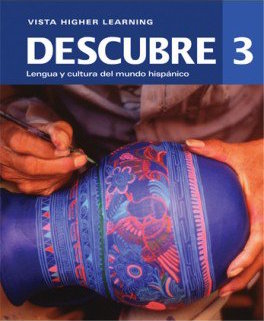
All Solutions
Page 354: Despues de leer
***
|TRUE |FALSE |SENTENCE |
|–|–|–|
| |**X** |1. El apellido de Sebastián es Pixel. / *Sebastian’s last name is Pixel.* |
|**X** | |2. La acción se desarrolla en Bolivia. / *The action takes place in Bolivia.* |
|**X** ||3. Sebastián cree que la mujer quiere hacerle una entrevista para una revista. / *Sebastian believes that the woman wants to interview him for a magazine.* |
|**X** | |4. Las fotos prueban la corrupción del presidente Montenegro. / *The photos prove President Montenegro’s corruption.* |
| |**X** |5. Isabel le propone algo inocente. / *Isabel proposes something innocent.* |
| |**X** |6. Sebastián dice que no acepta la propuesta. / *Sebastian says he does not accept the proposal.* |
***
1. El apellido de Sebastián es Pixel. / *Sebastian’s last name is Pixel.*
* **No se menciona el apellido de Sebastián.** / *Sebastian’s last name is not mentioned.*
* **Isabel le propone algo ilegal.** / *Isabel proposes him something illegal.*
* **Sebastián dice que no acepta la propuesta.** / *Sebastian accepts the proposal.*
1. ¿En qué época piensas que se desarrolla el relato? / *In what era do you think the story takes place?*
* **Creo que se ubica a finales de los 90 e inicios de los 2000.** / *I believe it is located in the late 1990s and early 2000s.*
* **Lo hace para que sea en un lugar alejado donde no los vean.** / *He does this so that it will be in a remote place where they will not be seen.*
* **Su función es solucionar todos los problemas de la imagen publica del gobierno.** / *Its function is to solve all the problems of the government’s public image.*
* **La imagen revela que el gobierno es corrupto.** / *The image reveals that the government is corrupt.*
trabajo? ¿Crees que hará el trabajo? / *What factors do you think are driving him to do or not to do the job? Do you think he will do the job?*
* **Yo creo que lo incita lo raro de la situación y lo emocionante que es, aunque creo que no lo haría.** / *I think he’s spurred on by the weirdness of the situation and how exciting it is, although I don’t think he would do it.*
* **Para mi no es un típico latinoamericano. se ve que es alguien inteligente y algo necio, no mucha gente logra sobresalir como el lo hizo fácilmente podría ser un profesional de cualquier lugar.** / *To me he is not a typical Latin American. He is someone intelligent and a bit foolish, not many people manage to succeed as he did, he could easily be a professional from anywhere.*
* **Todos tienen en común ser temas de interés general que reflejan la época en la que se esta dando la situación.** / *All of them have in common that they are topics of general interest that reflect the time in which the situation is taking place.*
* **Suena como un café con cierta temática de los artistas de la época dorada de Hollywood, podría ser en cualquier parte.** / *Sounds like a cafe with a certain theme of the artists of the golden age of Hollywood, it could be anywhere.*
* **No lo creo, ese tipo de cosas el gobierno las haría con muchísima más discreción que como se presenta en el texto.** / *I don’t think so, that kind of thing the government would do with much more discretion than the way it is presented in the text.*
* **Es ético, pues si no vio a quien se le cayo, no puede dárselo a su dueño o ir preguntando a cada persona que vea.** / *It is ethical, because if you did not see who dropped it, you cannot give it to its owner or go asking every person you see.*
* **No es ético, pues debió de esperar más tiempo o en su debido caso avisar al supermercado.** / *It is unethical, as he should have waited longer or, if necessary, informed the supermarket.*

